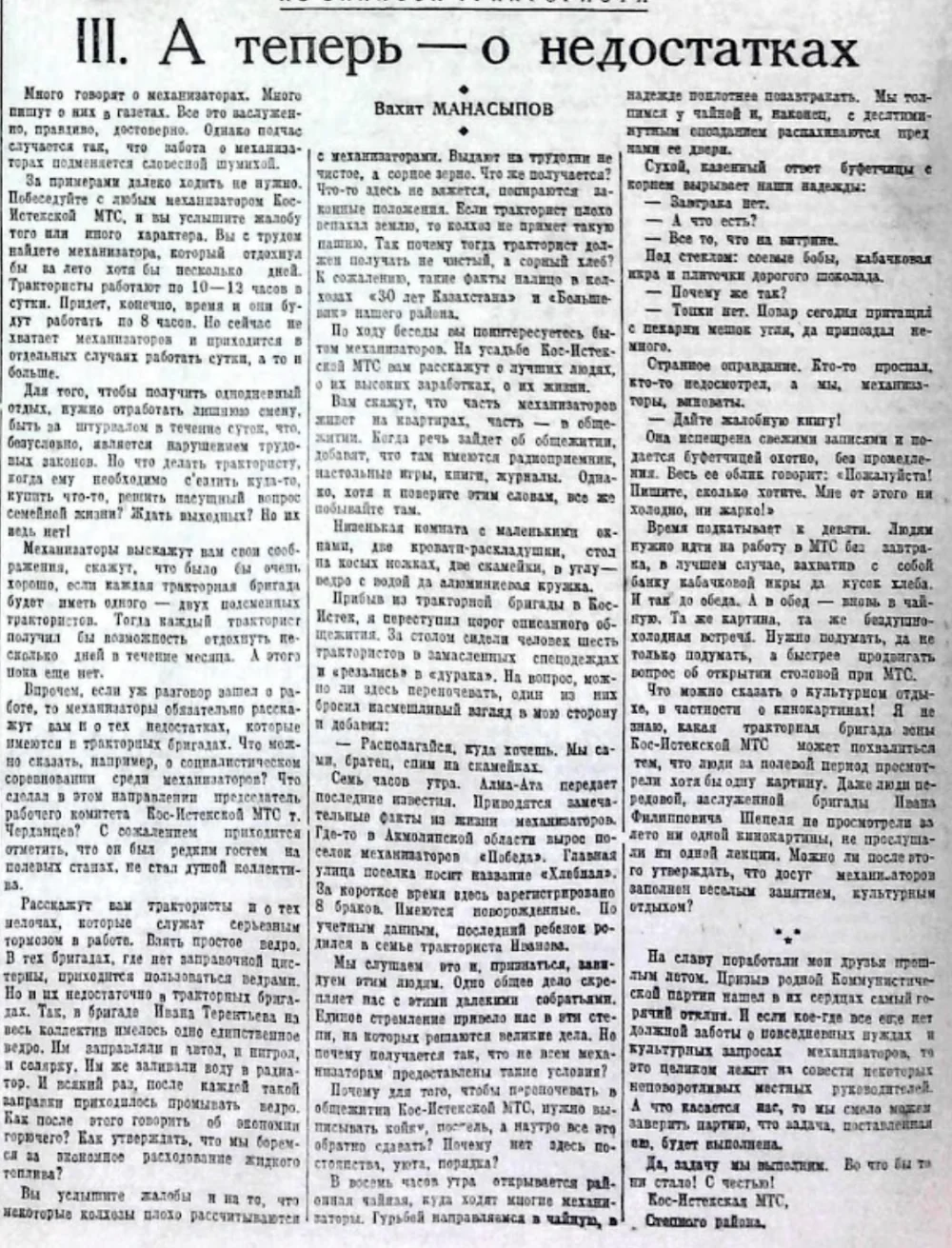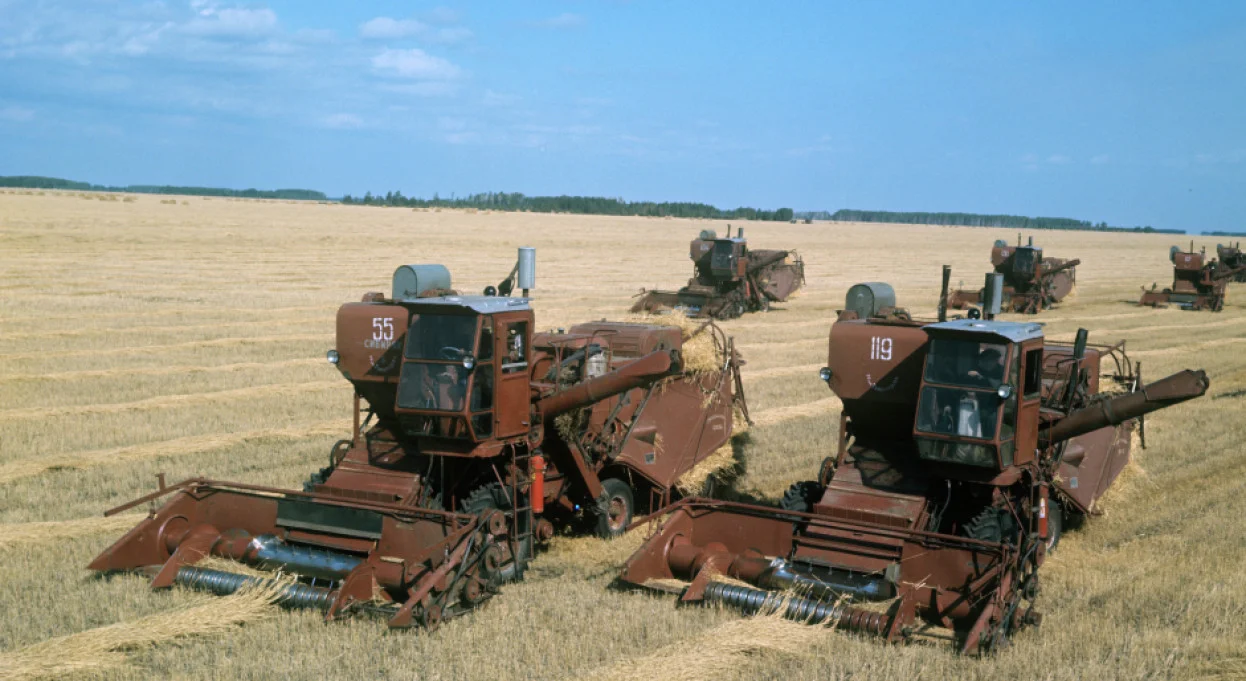Overcrowding, Overwork, and Food Shortages
In 1954, the February-March Plenum of the Central Committee of the Communist Party of the Soviet Union (CPSU) adopted a resolution titled ‘On Further Increasing Grain Production in the Country and Developing Virgin and Fallow Lands’. This marked the launch of the Virgin Lands Campaign, intended to boost grain production in the USSR by cultivating vast new areas, primarily in Kazakhstan. As usual in the USSR, Soviet newspapers eagerly reported the widespread ‘support’ of the population for the party's decisions and highlighted the successes of the new agricultural policy. However, many challenges could not be concealed. The campaign began with no prior preparation: there were no roads, grain storage facilities, skilled workers, housing, or even repair bases for equipment. Delays in meeting production targets were often attributed to the negligence of collective and state farm managers, but regional press occasionally exposed deeper systemic issues with the entire initiative.
For instance, the November 1954 issue of Aktiubinskaia Pravda published a letter from mechanic V. Manasypov, who complained about various shortages and difficulties:
You don’t have to look far for examples. Speak to any mechanic at the Qosestek Machine and Tractor Station (MTS), and you’ll hear a range of complaints. It’s rare to find a mechanic who’s had even a few days of rest during the summer. Tractor drivers typically work 10–12 hours a day. One day, perhaps, they’ll have eight-hour shifts, but for now, there aren’t enough mechanics, so they often work 24 hours straight—or even longer. There are also complaints that some collective farms poorly compensate mechanics, paying them with grain contaminated with impurities instead of clean grain for their labor.
Manasypov also highlighted poor living conditions in dormitories:
They’ll tell you that some mechanics stay in rented rooms, while others reside in dormitories. When describing the dormitory, they’ll highlight all the supposed comforts, such as a radio, board games, books, and magazines. But if you think this sounds reasonable, just go and see it for yourself.
A cramped, low-ceilinged room with small windows, two folding beds, a shaky table, two benches, a water bucket in the corner, and an aluminum cup.
When I arrived in Qosestek from the tractor brigade and stepped into this so-called dormitory, I found six tractor drivers in greasy overalls sitting around the table playing cards. When I asked if there was anywhere to sleep, one of them shot me a mocking glance and said:
‘Settle in wherever you can. We, brother, sleep on the benches ourselves’.

Aktiubinskaia Pravda/From open access
Despite the immense effort, the Virgin Lands Campaign delivered only short-term results while significantly worsening environmental issues. In many areas, soil erosion set in, and large tracts of land previously used as pastures were irreversibly damaged.
Aktiubinskaia Pravda was a daily regional newspaper published in Aqtöbe from 1932.




